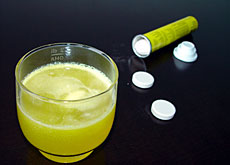ABB blows whistle and escapes fine

The European Commission has hit a cartel of 11 electric power makers with a record fine but Zurich-based ABB, which blew the whistle in the affair, has been let off.
Brussels imposed total fines of €750.7 million (SFr1.22 billion) on the companies, with more than half the fine levelled against Germany’s Siemens for being the ringleader of the price fixing.
ABB, which had also been part of the cartel, was originally fined €215 million but this was nullified due to the company’s part in denouncing the affair and turning over extensive evidence.
“ABB companies and employees are not permitted under any circumstances to engage in any anti-competitive practices,” the company said in a statement on Wednesday after the announcement of the fines.
According to EU policy in cartel cases, the first firm that admits it is part of a cartel is freed from paying any fine.
Not fair?
“You can say that this is not fair, but without the information from ABB we might never have heard about the cartel,” said a spokesman from the EU Competition Commission.
A reduction can also be given to other companies that cooperate later, but in this case those concerned confessed too late and could offer no additional information.
The cartel accounted for all European sales of gas-insulated switchgear, which is needed at sub-stations to carry electricity to homes, offices and factories.
It is heavy, expensive equipment that controls the flow of energy in electrical power systems.
“The Commission has put an end to a cartel which has cheated public utility companies and consumers for more than 16 years,” said Competition Commissioner Neelie Kroes.
Anonymous addresses
The cartel used encrypted emails sent to anonymous addresses to help coordinate global cartel quotas. European companies agreed not to sell in Japan while Japanese companies stayed out of Europe, the Commission said.
It added that cartel members arranged sham tenders to maintain their global cartel quotas, spelled out in two written agreements.
Siemens has said it will appeal against its fine of about €396 million to the European Court of Justice, arguing it was “completely exaggerated”.
The other members of the cartel were Alstom, Areva, Fuji, Hitachi, Japan AE Power Systems, Mitsubishi Electric Corporation, Schneider, Toshiba and VA Tech.
The companies may also face problems in other countries for their actions.
swissinfo with agencies
Asea of Sweden and BBC Brown Boveri of Baden, Switzerland, merged in 1988 to form ABB.
After an initially successful expansion, ABB almost collapsed in 2001 with a record loss of $691 million. It was also confronted with asbestos claims from the United States.
Today ABB is a world leader in power and automation technologies.
It made a net profit of $735 million in 2005 with sales of $22.442 billion.
A vitamin cartel hit the headlines in Switzerland in 2001. The vitamin division of the Basel pharmaceutical company Roche admitted being part of price fixing that had been practised for years.
The EU Commission fined Roche a record €462 million for multiple violations.
Roche pleaded guilty in 1999 and paid a record $500 million fine for price fixing for certain vitamins sold in the United States and elsewhere. German firm BASF also pleaded guilty and was fined $225 million for its role in the same antitrust conspiracy.

In compliance with the JTI standards
More: SWI swissinfo.ch certified by the Journalism Trust Initiative











You can find an overview of ongoing debates with our journalists here . Please join us!
If you want to start a conversation about a topic raised in this article or want to report factual errors, email us at english@swissinfo.ch.